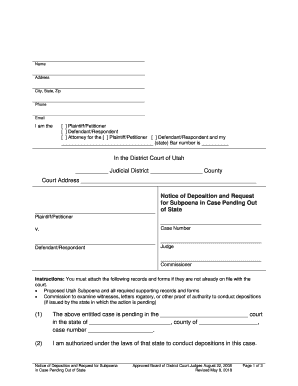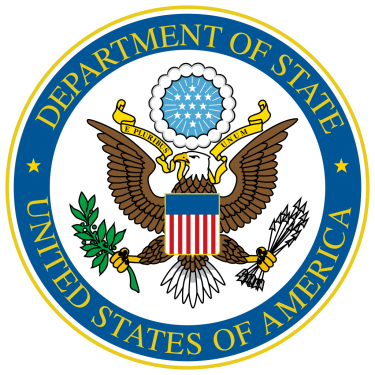Letters Rogatory vs. Mutual Legal Help Treaties: Key Differences Discussed
Letters Rogatory vs. Mutual Legal Help Treaties: Key Differences Discussed
Blog Article
The Function of Letters Rogatory in International Regulation: Key Insights
Letters rogatory function as an essential tool in global law, helping with cross-border legal support by permitting territories to officially ask for evidence and activities from each other. Rooted in historic precedents and defined through arrangements like the 1970 Hague Convention, these demands are important for fostering international collaboration. Their execution usually runs into substantial obstacles, including disparities in lawful requirements and procedural hold-ups, which can impede their efficacy. Recognizing the subtleties of this process elevates important concerns about global partnership and the potential reforms required to improve its reliability. What effects might these difficulties have for future legal process?
Meaning of Letters Rogatory
In the world of international law, letters rogatory act as official demands issued by a court in one territory to look for aid from a court in another territory. Letters rogatory. These requests are especially substantial in cross-border legal process, where the enforcement of a court's order or the gathering of evidence might be impeded as a result of jurisdictional constraints

The procedure generally calls for the asking for court to verbalize the specific details or action required from the foreign court, adhering to the legal methods and conventions established between the jurisdictions entailed. When issued, the letters rogatory are transferred through polite channels, which might include consular offices or embassies, to make certain that the request is identified and acted upon by the international court. In general, letters rogatory exhibit the cooperative structure necessary for effective worldwide lawful processes.
Historic Context
Although the practice of letters rogatory has old roots, its formalization within the framework of global legislation arised considerably in the 20th century. Historically, such demands for judicial support were used in various legal practices, including Roman legislation, where they promoted cross-border teamwork in lawful matters. The idea gained renewed focus with the rise of globalization and the raising intricacy of international legal communications.
The mid-20th century saw the facility of treaties and conventions that sought to standardize the procedure of letters rogatory. Especially, the 1970 Hague Convention on the Taking of Evidence Abroad in Commercial or civil Matters gave a structured technique, boosting the efficacy of these requests - Letters rogatory. This duration noted a change from informal setups to a much more organized framework, which attended to the challenges presented by differing nationwide legal systems
As states ended up being much more synergistic, the need for efficient devices to collect evidence throughout boundaries emerged, reinforcing the role of letters rogatory in helping with worldwide teamwork. Today, they continue to be a vital instrument for acquiring evidence and making sure that justice goes beyond nationwide borders, showing the progressing nature of global legislation in action to worldwide difficulties.
Process of Issuing Requests
The procedure of releasing letters rogatory typically involves several vital actions made to make certain that ask for judicial aid are clear, certain, and certified with both domestic and international lawful criteria. An event seeking assistance has to prepare an official request that lays out the essential truths of the instance, the alleviation sought, and the certain evidence or testament needed. This document needs to be crafted with precision to fulfill the legal needs of the jurisdiction in which it will certainly be submitted.
Adhering to the preparation of click resources the demand, it is submitted to the ideal authority, usually a court or an assigned governmental firm. This authority examines the demand to ensure it abides by legal requirements and procedural norms. As soon as authorized, the demand is transferred to the foreign jurisdiction via diplomatic networks.
Upon receipt, the foreign court reviews the request's compliance with its neighborhood laws and methods (Letters rogatory). If approved, it proceeds to implement the request, which may entail the issuance of subpoenas or the collection of evidence. Throughout this process, keeping clear communication between the asking for and obtaining jurisdictions is critical to guarantee effective collaboration and the gratification of the request
Difficulties and Limitations
Limitations and difficulties regularly occur in the procedure of performing letters rogatory, commonly stemming from differing legal systems and treatments between territories. One considerable challenge is the differing criteria of admissibility for proof, which can lead to complications in the acceptance of paperwork requested with letters rogatory. In addition, the absence of harmony in lawful terms and interpretations can develop misconceptions, making complex interaction in between courts in various nations.
In addition, hold-ups prevail as a result of bureaucratic procedures, as the demand click here for info might require to pass with several layers of lawful authorities prior to it is satisfied. In some instances, the requested jurisdiction might do not have the essential sources or readiness to coordinate, additionally impeding the process. Language barriers also add to obstacles, as precise translation of lawful documents is crucial for guaranteeing that the desired message is conveyed without distortion.
Last but not least, sovereignty problems might arise, as some states are reluctant to abide with requests that they perceive as infringing upon their lawful freedom. These difficulties highlight the complexities inherent in making use of letters rogatory, requiring greater harmonization and cooperation amongst worldwide legal systems to boost their efficiency.

Effect On International Participation
Recognizing the importance of letters rogatory in promoting global participation is essential, as these requests help with cross-border legal help and advertise joint initiatives in civil and criminal issues. By allowing one territory to formally request support from one more, letters rogatory produce a structured legal framework that enhances the efficiency of international communication in between judicial authorities.
Making use of letters rogatory aids to develop common depend on and regard among nations, which is important in a progressively interconnected world. They act as a mechanism not just for collecting evidence but also for ensuring that lawful procedures are maintained across borders. This is particularly important in combating global criminal activity, where the failure to protect cooperation can undermine justice.
In addition, the dependence on letters rogatory can improve complex lawful procedures, decreasing delays and unpredictabilities in worldwide investigations. The step-by-step safeguards fundamental in this process add to the security of individual rights while facilitating teamwork among states. Inevitably, the effect of letters rogatory on international participation highlights their role as crucial tools in the promo of justice, promoting a joint spirit that transcends legal systems and nationwide limits.
Verdict
In final thought, letters rogatory offer as an essential instrument in international legislation, promoting cross-border lawful assistance and collaboration. The continued development of these devices is important for improving the efficiency of worldwide lawful procedures, inevitably cultivating more powerful collaboration in both civil and criminal matters across jurisdictions.
Letters rogatory serve as a pivotal instrument in international law, helping with cross-border legal support by enabling jurisdictions to formally request evidence and actions from one another.The procedure generally requires the requesting court to articulate the specific information or action needed from the international court, sticking to the lawful methods and conventions developed in between the territories entailed. Historically, such demands for judicial help were used in different legal traditions, including Roman law, where they helped with cross-border collaboration in legal matters.The process of issuing letters rogatory normally includes a number of crucial steps developed to guarantee that demands for judicial aid are clear, specific, and compliant with both worldwide and domestic legal standards.Additionally, hold-ups are common due to administrative processes, as the request might have a peek at these guys require to pass via numerous layers of lawful authorities prior to it is satisfied.
Report this page